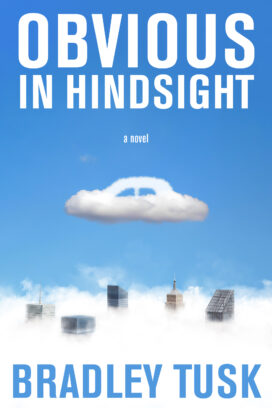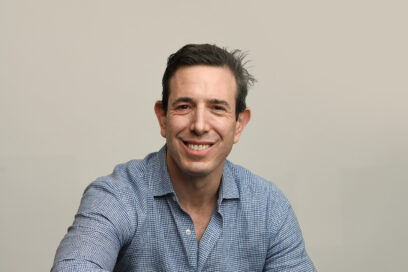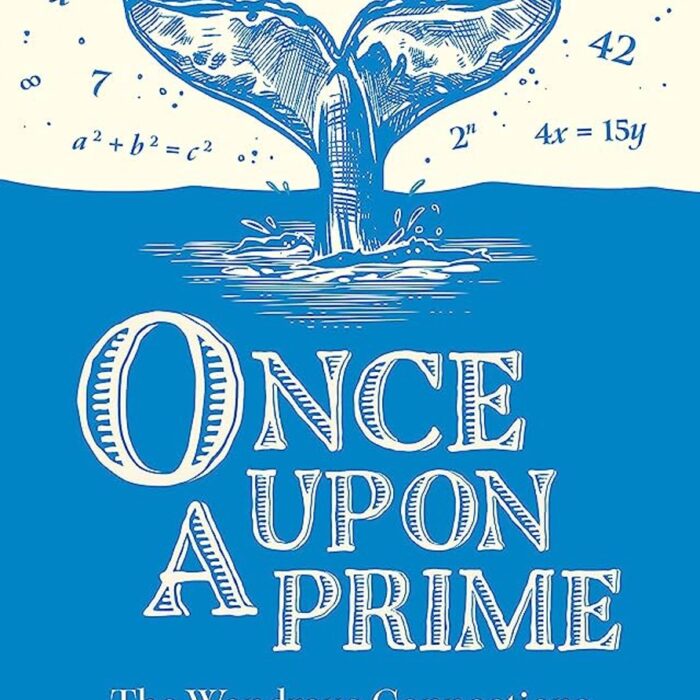You have no items in your cart. Want to get some nice things?
Go shopping
In this interview, we delve deeper into Bradley Tusk’s motivations and insights into his debut novel. “Obvious in Hindsight,” The novel crafts a narrative that intertwines politics with the concept of flying cars. It’s a significant transition, showcasing a diversification in Tusk’s capabilities. You can get your hands on the novel on Amazon & P&T Knitwear
Eric Akoto: Congratulations on your debut novel, “Obvious in Hindsight.” What inspired you to write a satirical book about the intersection of tech and politics?
I’ve spent three decades in the trenches of tech, politics, campaigns, city government, state government, the federal government – you name it. And I’ve learned a lot about how politicians think, why they make decisions, how they make decisions and what influences those decisions. I felt like if I could show readers, in a hopefully entertaining way, how that process unfolds and how politicians really think, I could make it easier to not only understand how the system works but how to change it.
Eric Akoto: In the book, you explore the efforts of political strategists to help a startup launch a flying car. What made you choose this futuristic concept as the central plot point?
Ironically, when I started writing, flying cars still felt like a concept pretty far out there in the future. Since then, the industry has made incredible gains and are now vying with autonomous vehicles for first mover position. So what started as futuristic ended up as somewhat realistic. But it’s also just a fun concept that I knew I’d enjoy thinking and writing about.
Eric Akoto: Can you share some of the key themes or messages you hope readers will take away from “Obvious in Hindsight”?
The main one is that every policy output is the result of a political input. Every politician (with a handful of exceptions) makes every decision solely based on the next election and nothing else. That’s how all of the politicians in Obvious in Hindsight behave and everyone around them — staffers, journalists, lobbyists, consultants, reporters, press flacks – behaves accordingly. If you can understand what will make a politician feel like you can either help them win their next election or potentially cost them their next election, you immediately become relevant. While the concept in the novel is somewhat fantastical (though a lot less than when I started writing), the underlying motivations are very real.
Eric Akoto: Your novel explores the relationship between technology and politics. How do you see the emergence of eVTOL aircraft fitting into this evolving landscape?
Our real-life work in helping startups navigate politics and regulation falls into one of two categories. The first is when a startup comes up with a better way to do something that already exists. They start succeeding, start taking market share from the incumbents, the incumbents use political muscle to fight back and we have a regulatory fight over market share. Uber is the perfect example here, but AirBnb, FanDuel, Lemonade, and dozens more also apply. The other category is where flying cars fit in – there is no existing regulatory framework and you have to create it from scratch. That’s often both harder and more interesting. In real life, the actual regulatory process for certifying the technology and permitting it is going to be a lot more complex than what you see in the book, involving multiple levels of government (if I wrote it that way, it would be a lot less fun to read).
Eric Akoto: Satire often provides a unique lens for commentary. What aspects of the tech-politics relationship were you most eager to satirize in your book?
A bunch: the fundraising process, the board oversight process, the process of tech startups dealing with the media, the process, and often hilarious exchanges that occur when startup people and political people try to interact. With that said, one reason we were able to grow from a political consulting firm in real life (Tusk Strategies) to a venture capital fund (Tusk Venture Partners) is because there are a lot of similarities between tech startups and political campaigns. They both have a ton of energy. They’re often staffed by a lot of young, excited, hard-working people. There’s a cause or candidate they believe in. They’re working towards a particular outcome (the election for campaigns, the IPO or sale for startups). So while the two worlds look very different, they’re actually a lot alike.
Eric Akoto: While writing the novel. On a daily basis, how did you shift from your role in venture capital at Tusk Ventures to engage in a creative space for writing? And what would be your advice to our readers who have a book inside them but also a demanding day job?
I mainly wrote on weekends and at night but also tried to carve out time in my schedule during the day and I learned to work in small chunks, focusing on a few scenes within a chapter. However, I found that the book was running through my subconscious all of the time, so I was constantly realizing things and taking notes and then applying those notes to the next time I sat down to write. There is no magic bullet for this but the truth is, if you truly love writing, if it makes you really happy, then you find and make the time to do it.
Eric Akoto: Did you use AI at all during the writing process, and how best can creatives leverage AI?
I didn’t — though had ChatGPT existed when I started writing, I probably would have used it for research. I’m working on a non-fiction book right now about mobile voting and we’re trying to see how we can use AI for the infographics for the book.
Eric Akoto: Could you elaborate on the title, “Obvious in Hindsight”? What does it signify, and how does it relate to the story?
It’s kind of an inside joke with myself where every time there’s a major screwup in politics or tech, when you look back on how it unfolded, all of the red flags seem so obvious. But only in hindsight – rarely in real-time. Everything that unfolds in this book is a red flag!
Eric Akoto: As a venture capitalist, what similarities or differences have you observed in the decision-making processes of politicians and tech entrepreneurs?
In both cases, inputs shape outputs. But the inputs are different. For politicians, the inputs are the factors that affect campaigns – fundraising, polling, press, endorsements. For tech entrepreneurs, the inputs are the factors that affect the ultimate exit (sale or IPO) – fundraising, engineering, customer acquisition, growth, margins, EBITDA, partnerships, sales channels, etc. But ultimately, if you understand and can impact the inputs, you can change the outputs. We just now find ourselves doing both, all day, every day, at the same time.
Eric Akoto: Your book promises to reveal what motivates politicians’ decisions. Can you give us a sneak peek into some of these motivations that your readers can expect to uncover?
There are three Mayors who our protagonists are chasing. Joe Navarro, the Mayor of New York City, is at the end of his second term, he can’t run again (term limits) and is looking for a way to make money to support the lifestyle he’s grown accustomed to post-City Hall. Don Pearce, the Mayor of Austin, is looking to build the right narrative for his upcoming run for Texas Attorney General and to contain the fallout of a brewing scandal in his administration. Julian Estes, the Mayor of Los Angeles, is a much smaller character but his support is completely dependent on the views of one major union leader, whose support he needs to run for President.
Eric Akoto: “Obvious in Hindsight” is not only entertaining but also offers a unique perspective on the tech-politics nexus. How do you think readers can apply the insights from your book to their understanding of real-world political and technological developments?
If you can understand why politicians make the decisions they make, and if you can accept that what motivates them is not idealism or belief or policy but ambition and insecurity, then you can understand why, in real life, they make certain decisions. You can think about politics more intelligently and see how all of the dots truly connect. On the tech side, it’s kind of the same thing. Different inputs but ultimately, every decision a tech founder makes is designed for their version of the election – the ultimate IPO or sale of their startup.
Eric Akoto: As a co-founder of the Gotham Book Prize, how has your experience with literature and storytelling influenced your approach to writing this novel?
I love books and have been lucky to expand my activities into the literary world in a few different ways over the last few years. The Gotham Book Prize has introduced me to a lot of great writers, both the winners and the members of our jury. I opened a bookstore called P&T Knitwear on the Lower East Side of Manhattan in 2022 and that gives me a daily lens into the publishing industry and, more important, the incredible community of book lovers in New York City. I think both of those experiences only made me more determined to write my own novel and while I’ve always read a lot, the combination of owning your own bookstore and having so many novels to read each year to judge the Gotham Book Prize has all made me a better reader and writer.
Eric Akoto: What was the most challenging aspect of writing a satirical novel, and do you have any advice for aspiring writers who want to tackle similar themes in their work?
I think the only type of fiction writing I’m good at is satire. The good news is, it comes pretty naturally to me. The bad news is, there’s a big divide between writing something to make myself laugh and writing something that makes the reader laugh. Understanding the difference, for me, is really hard, especially when a friend reading the book points that out and I have to decide if they’re right or if I want to keep the line/ paragraph/ material anyway. But overall, the point of satire is to make a strong societal point in a really entertaining way and if you’re not moved by the point or entertained by your writing, you’re probably on the wrong track.
Eric Akoto: Can you share any memorable anecdotes or experiences from your journey of writing and publishing “Obvious in Hindsight”?
The idea first started as a TV show. I was working with Steven Soderbergh on a political project, it was around when my first book, The Fixer, was coming out, I gave him a galley and he said “Let’s make this a show!” So that led to writing the pilot with him and then writing the next nine episodes on my own. Our TV adventure ended when Covid happened (our meetings at Apple were scheduled for March 10, 2020). But after a few months, I knew I liked the storyline and characters too much to just let it fade away, and that led to turning it into a novel.
Eric Akoto: Are there any plans to explore these themes further in future novels, or do you have other writing projects in mind?
I have a book coming out next year about our work to make mobile voting happen. It’s being published by Sourcebooks, which is a Random House imprint. But I would love to write a sequel to Obvious in Hindsight. I think the structure and characters allow for it to be used to take on other campaigns and fights so hopefully this one does well enough that I get a chance to write another one.
Eric Akoto: Finally, what do you hope readers will remember most about “Obvious in Hindsight,” and what would you like them to discuss and ponder after finishing the book?
I want them to have a good time when they’re reading it, first and foremost. If I can add a little joy and levity to people’s lives, that would make me very happy. But if they also come away with a better sense of how things work, why they work that way, and what can be done about it, then hopefully the book creates a roadmap for change so we can take this polarized, toxic, dysfunctional world we call politics and turn it into something better.
Eric Akoto: During your thirty years in politics, which key events do you now recognize as obvious in hindsight?
The rise of the Tea Party/ Trump. Globalization was inherently going to lead to winners and losers within the U.S. as opposed to the U.S. being the winner ahead of everyone else. That doesn’t mean it isn’t the right policy or better for the world (every metric for living in extreme poverty from life expectancy to literacy to infant mortality has improved exponentially thanks to globalization, capitalism, and democracy). However, combine widespread layoffs, changes to the way our economy works, the opioid crisis, the creation of FOX News and the emergence of social media (Facebook especially gave the right the ability to counter the organization advantage Democrats had with organized labor, by making reaching and mobilizing people far easier and more efficient). While Trump himself may not have been predictable, a demagogue like him was, especially contrasted with someone like Hillary Clinton, who, although highly qualified, represented everything half of the country came to hate about the other half.
Eric Akoto: In what ways do you predict that technology will impact the outcome of the 2024 elections?
Until we remove the liability protections for internet platforms where they are not responsible and cannot be sued for the content posted by their users, more and more misinformation will fester and the use of Artificial Intelligence will make the problem even worse. Congress can solve most of the problem (and a lot of the toxicity of the internet in general) by repealing Section 230 of the Communications Decency Act of 1996. This would allow users to sue Meta or Twitter or YouTube for allowing malicious false information to be posted and that would force the platforms to start doing real content moderation and start protecting kids and the rest of us. By facing liability, the financial incentives for the platforms shift from turning a blind eye to toxic content (since it drives more clicks, which drives more advertising revenue) to needing to take it seriously. This would change the internet radically for the better. Ironically, repealing Section 230 was supported in 2020 by both Biden and Trump and yet still, Congress refuses to act.
Read an extract of ‘Obvious in Hindsight’ here.

Bradley Tusk is a venture capitalist, political strategist, philanthropist, and writer. He is the author of The Fixer: My Adventures Saving Startups From Death by Politics and Obvious in Hindsight, hosts a podcast called Firewall about the intersection of tech and politics, and is the co-founder of the Gotham Book Prize. He recently opened a bookstore, podcast studio, event space and cafe called P&T Knitwear on Manhattan’s lower east side. He is also an adjunct professor at Columbia Business School.




